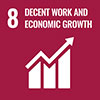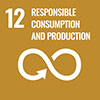The revolution of ethical and solidarity finance
Financial exclusion, while producing greater social exclusion and poverty, is contributing to the emergence of new types of organization in finance, banking and non-banking. Based on ethics and solidarity, such organizations favour the inclusion of the most marginalized groups. Ethical banking and community banking (including credit unions) offer an alternative to conventional banking and are increasingly being accepted. Moreover, civil society itself is leading a movement through which new non-banking ethical and solidarity finance initiatives are also emerging. Examples include financial services cooperatives, integrated cooperatives, collaborative finance, self-financed communities, time banks, social currencies and community development banks, among others. This paper analyses the main aspects arising globally from these processes of change, and highlights potential risks where these initiatives are used by large financial and non-financial corporations through new finance technologies (FinTech). Ethical and solidarity finance have become an appropriate instrument for inclusion, but certain risks remain that must be taken into account.
ODS



 Joan Ramon Sanchis
Joan Ramon SanchisFull professor at the University of Valencia, holding a doctorate in Business Economics (with maximum honours). Director of the Master's Degree in Social Economics (Cooperatives and Non-Profit Organisations) at the University of Valencia. Author of numerous scientific articles on social economy, cooperativism and banking, and of books such as ¿Es posible un mundo sin bancos? La revolución de las finanzas éticas y solidarias [Is a world without banks possible? The revolution of ethical and solidarity finance], from publishers El Viejo Topo, as well as La banca que necesitamos. De la crisis financiera a la banca ética: una alternativa socialmente responsable [The bank we need. From the financial crisis to the ethical bank: a socially responsible alternative], from Publicaciones de la Universitat de València. Co-author of books such as Caixa Popular: un modelo de banca cooperativa social y diferente [A people's savings bank, a cooperative, social and alternative banking model] and El modelo Consum. Una cooperativa responsable y sostenible [The Consumption model, a responsible and sustainable cooperative].



